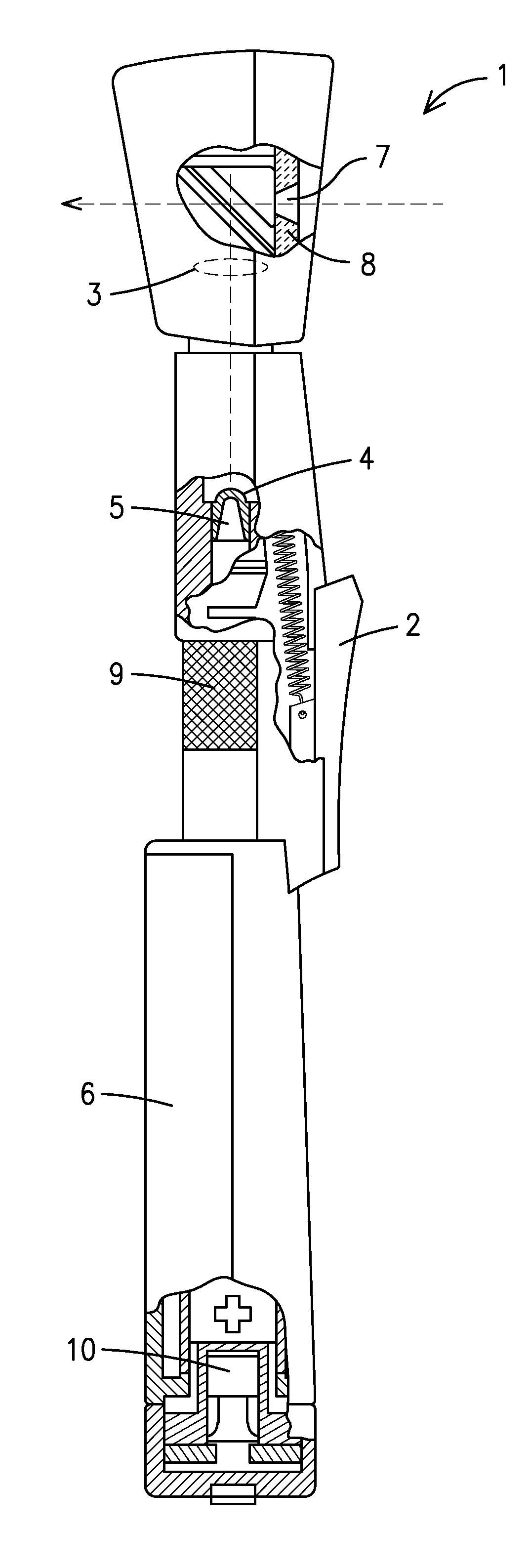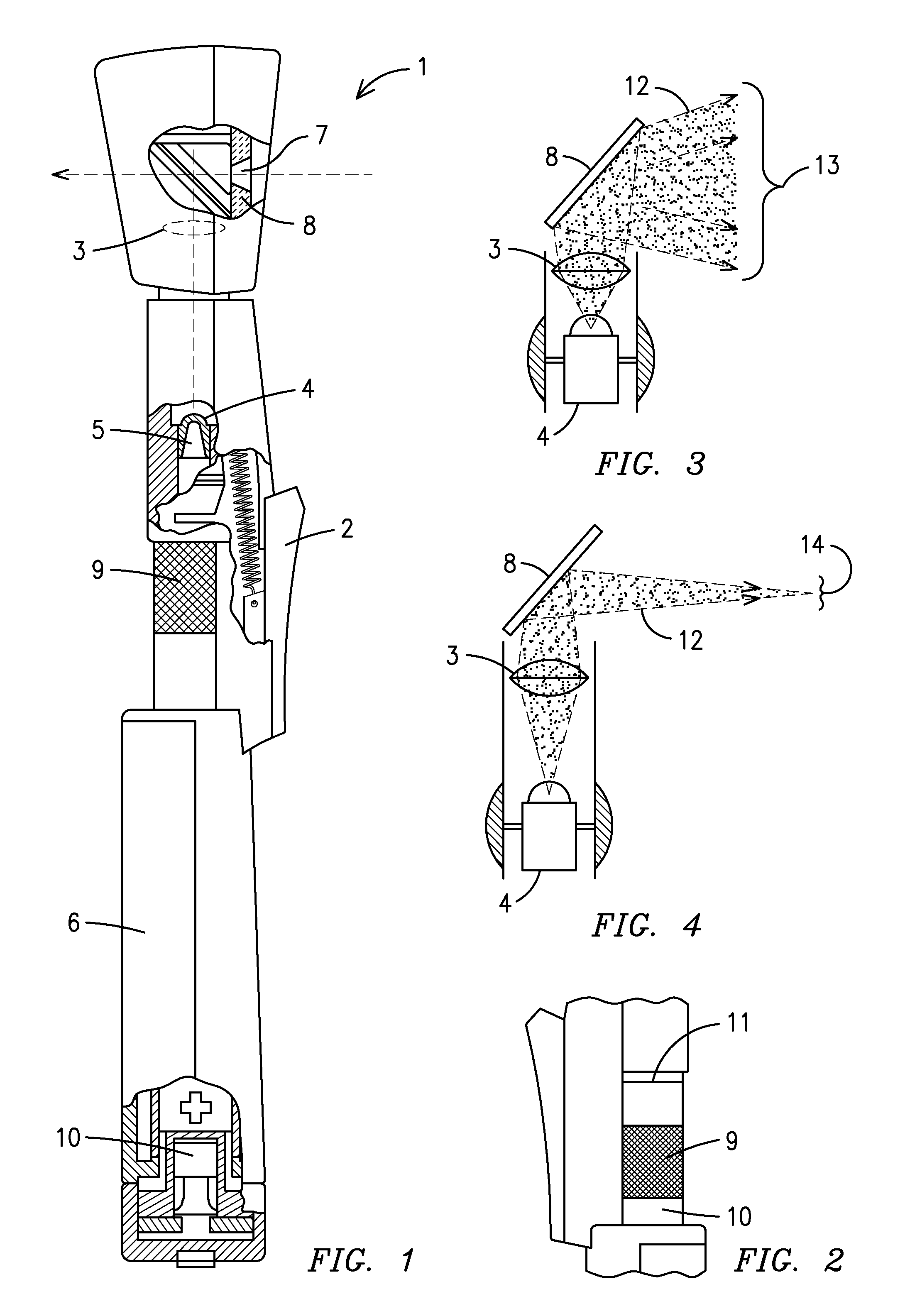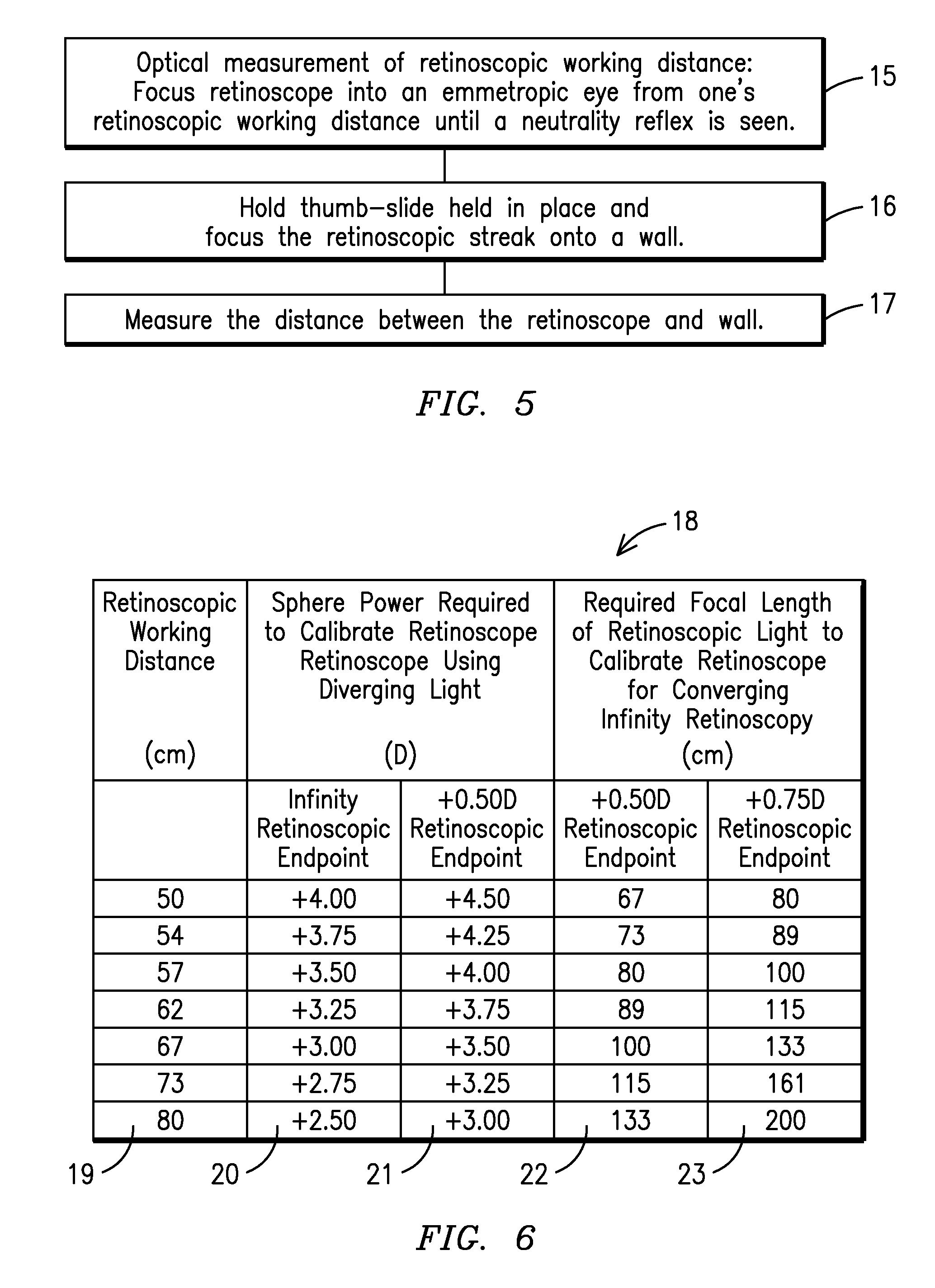Device and method for calibrating retinoscopes
a retinoscope and calibrator technology, applied in the field of devices and methods for measuring and determining the refractive error in eyes, can solve the problems of inability of the examiner to adjust the divergence of the emitted retinoscopy, large and expensive equipment, and many practitioners' inability to access, so as to improve the accuracy of streak and spot retinoscopy
- Summary
- Abstract
- Description
- Claims
- Application Information
AI Technical Summary
Benefits of technology
Problems solved by technology
Method used
Image
Examples
Embodiment Construction
1. retinoscope 2. thumb-slide 3. condensing lens 4. lamp 5. filament 6. handle of retinoscope 7. hole in mirror 8. mirror 9. knurl on power capsule10. power capsule11. calibration line on power capsule12. retinoscopic light rays13. diverging pattern14. converging pattern15. optical measurement ofretinoscopic workingdistance:16. hold thumb-slide in placeand focus retinoscopeonto wall.17.measure distance betweenretinoscope and wall18. calibration chart19. retinoscopic workingdistance (cm)20. calibration sphere required forcalibrated infinity endpointusing diverging light rays21. calibration sphere required forcalibrated +0.50D endpointusing diverging light rays22. required focal length ofretinoscopiclight for +0.50D endpoint using converging light rays23. required focal length ofretinoscopiclight for +0.75D endpoint using converging light rays24. plate25. +0.50D converging plate26. front surface of calibration plate27. rear surface of calibration plate28. alignment line29. attachment...
PUM
 Login to View More
Login to View More Abstract
Description
Claims
Application Information
 Login to View More
Login to View More - R&D
- Intellectual Property
- Life Sciences
- Materials
- Tech Scout
- Unparalleled Data Quality
- Higher Quality Content
- 60% Fewer Hallucinations
Browse by: Latest US Patents, China's latest patents, Technical Efficacy Thesaurus, Application Domain, Technology Topic, Popular Technical Reports.
© 2025 PatSnap. All rights reserved.Legal|Privacy policy|Modern Slavery Act Transparency Statement|Sitemap|About US| Contact US: help@patsnap.com



